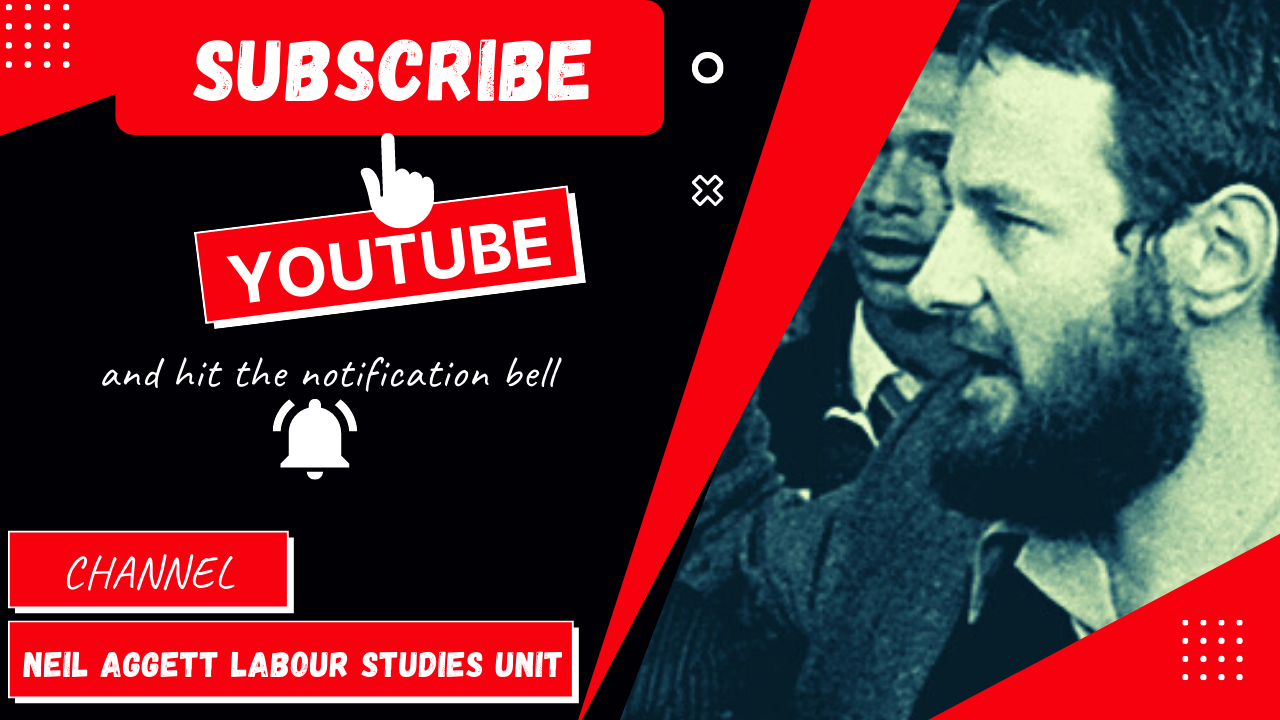
The Neil Aggett Labour Studies Unit (NALSU) is proud to announce the NALSU YouTube channel.
This is the home of videos and other recordings from our Labour Studies Seminar Series and related events. Now uploaded are:
1. Mametlwe Sebei, GIWUSA, on "Losing or Using the Crisis? Critical Reflections on South African Labour in the Great Lockdown”
2. Pat Horn, WIEGO,on "Organised Workers in the Informal Economy: COVID-19, Workers in the Informal Economy and New Forms of Work in South Africa"
3. Janet Cherry, NMU, on “Worker-Controlled Cooperatives and Community-Controlled Renewable Energy”
4. Michael Rogan, Rhodes/ NALSU, “Same Storm, Different Boat’: COVID-19, Precarity and the South African Labour Market”
5. Kenneth Chiridza, David Fryer & Claire McCann, Rhodes/ NALSU, on "Rhodes University’s Nine Tenths Programme: Closing the Gap between Township and University?"
6. Mbuso Moyo, FES/ UJ, on “Are Industrial Policies a Vehicle for Creating Sustainable Decent Jobs? Evidence from South Africa.
Please follow our link below:
Our other platforms are:
About the Neil Aggett Labour Studies Unit (NALSU), Rhodes University, Makhanda, South Africa
NALSU, based in the Eastern Cape, South Africa, is engaged in policy, research and workers' education. Built around a vibrant team from disciplines including Sociology and Economics & Economic History, it has active partnerships and relations with a range of advocacy, labour and research organisations. It draws strength from its location in a province where the legacy of apartheid and the cheap labour system, and the contradictions of the post-apartheid state, are keenly felt. We are named in honour of Dr Neil Hudson Aggett, a union organiser and medical doctor who died in 1982 in an apartheid jail after enduring brutality and torture.
The NALSU Labour Studies Seminar Series is run in partnership with the Departments of Sociology & Industrial Sociology, and Economics & Economic History, Rhodes University and the Friedrich-Ebert-Stiftung (FES).
